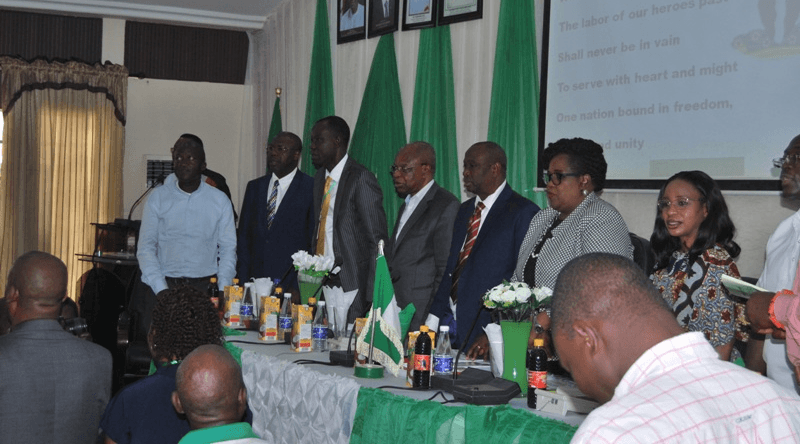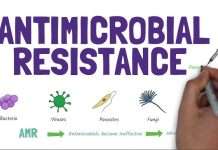– As Pax Herbal holds conference on traditional knowledge
Pharmacological and medical research experts have urged the federal government to explore the huge potential in herbal medicine to grow the economy, as well developing the health care sector in the country.
The experts, which included Prof. Maurice Iwu, chairman, Bio-Resources Development Group (BDG); Prof. Babatunde Lawal Salako, director general, Nigerian Institute of Medical Research (NIMR), Yaba, Lagos; Prof. (Mrs) Gloria Elemo, Director General, Federal Institute of Industrial Research (FIIRO); and Pharm. Sam Etatuvie, Director General, Nigeria Natural Medicine Development Agency (NNMDA), gave the advice during the recent international conference on indigenous traditional knowledge.
The conference, which had the theme “The Contribution of Indigenous Knowledge in Stimulating Integral Development in Nigeria and Africa” was organised by Pax Herbals Clinic and Research Laboratories and its subsidiary, Ofure (Pax) Integral Research and Development Initiative (OFIRDI), at the Federal Institute of Industrial Research (FIIRO), Oshodi, Lagos.
Speaking on the topic “Indigenous Traditional Medicine as a Vehicle for Sustainable Economic Development”, Iwu, a professor of pharmacognosy, who was the keynote speaker at the event, disclosed that exploring herbal medicine could enhance Nigeria’s Gross Domestic Product (GDP) which would boost the income of the country, adding that the federal government only needed to create an enabling environment that would promote the growth of the herbal medicine industry.
Iwu, a former chairman of the Independent National Electoral Commission (INEC), further noted that incorporation of some aspects of African traditional medicine into modern clinical practice, as done in China, India and other countries, will greatly enhance healthcare delivery in Nigeria, stressing that translational medicine approach, which incorporates data from folk use of herbal medicines, will also enrich the pool of available drugs.

In his own presentation on the topic, “Western Allopathic Medicine and Traditional African Medicine: Any Hope for a Synergy?”, Salako stated that traditional and complementary medicine can be incorporated as an integral part of a country’s formal healthcare system, with each being separately recognised as a legitimate form of healthcare delivery method within the same framework.
According to him, traditional and modern practices can be integrated as two branches of medical science, with the ultimate incorporation of elements of both to form a new branch, provided there is adequate awareness campaign and advocacy among physicians and herbal medicine practitioners on the role of scientific, cultural, educational, and legal issues in improving integration.
The NIMR boss however disclosed that factors impeding integration of traditional and complementary medicine into modern medical practices include use of poor quality, adulterated or counterfeit products; unqualified practitioners; misdiagnosis; delayed diagnosis; failure to use effective conventional treatments; as well as exposure to misleading or unreliable information.
“Government should endeavour to develop and facilitate the use of traditional medicine in Nigeria in the official healthcare system, harness the potential and economic benefits of traditional medicine practice to accomplish the provisions of the National Economic Empowerment and Development Strategy (NEEDS), and also establish a country-specific institutional framework for traditional medicine,” Salako said.
Speaking earlier at the event, Minister of Health, Prof. Isaac Adewole noted that the programme was very relevant at a time when the government is aiming at using all available resources of the nation to improve and develop traditional medicine through proper regulation, research and development training, adding that traditional medicine is well positioned to play a strategic role in the diversification of the country’s economy as a natural resource.
The minister also noted that the formal training of herbal medicine practitioners was receiving full attention and would soon commence at first degree level in some of the country’s universities.
“The reviewed bill for the establishment of Traditional Medicine Council of Nigeria for the regulation of the practice has been forwarded to the Minister of Justice for his inputs, after which it will be presented to the federal executive council for approval and forwarded to the National Assembly,” Adewole said.
Other dignitaries at the event included Rev. Fr Anselm Adodo, director, Pax Herbal Clinic and Research Laboratories (conference convener); Dr Ogbonnaya Onu, Minister of Science and Technology, who was represented by Pharm. Sam Etatuvie, director general, Nigerian Natural Medicine Development Agency (NNMDA); Dr Ohioma Pogoson, director, Institute of African Studies (IAS), University of Ibadan; Dr Danazumi Mohammed Ibrahim, director general, National Office for Technology Acquisition and Promotion (NOTAP); Prof. Alexander Schieffer, guest speaker and book reviewer; Dr Bunmi Omoseyindemi; Prof. Sophie Oluwole; and Dr Monica Eimunjeze, representative of the DG, NAFDAC.










